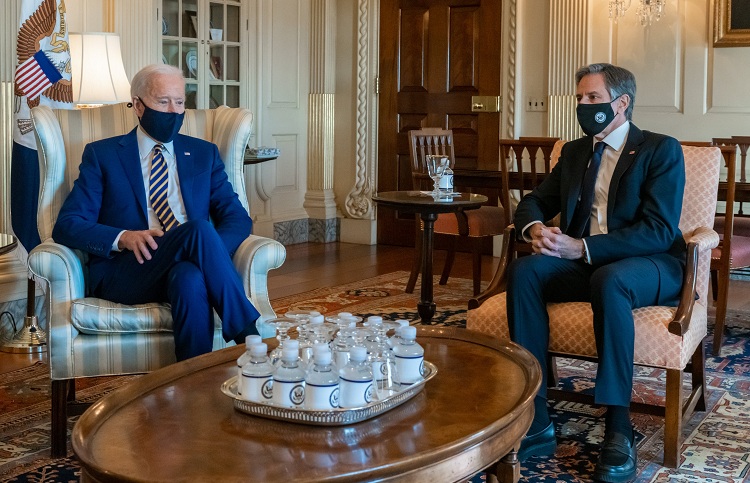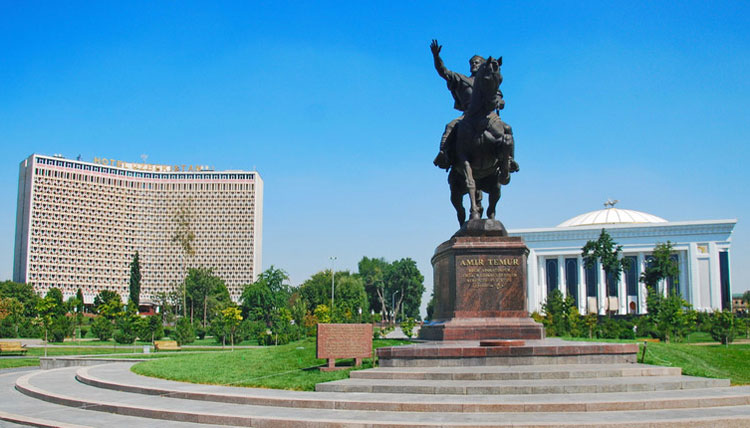Eduardo González
The Spanish Government has not yet made contact at the highest level with the new US Administration, in spite of the strong sympathy shown towards it from the very moment of its victory in the presidential elections and the fact that both the new President, Joe Biden, and the new Secretary of State, Antony Blinken, have been very active in this regard.
Since taking office on January 20, the new U.S. President initially contacted his two neighbors (as tradition dictates), the Prime Minister of Canada, Justin Trudeau, and the President of Mexico, Andrés Manuel López Obrador. The telephone conversations continued with British Prime Minister Boris Johnson, French President Emmanuel Macron, German Chancellor Angela Merkel, Australian Prime Minister Scott Morrison, South Korean President Moon Jae-in, Japanese Prime Minister Yoshihide Suga, Russian President Vladimir Putin and NATO Secretary General Jens Stoltenberg, according to the White House.
In contrast, the “contacts” between Sánchez and Biden have been limited, to date, to the tweet written by the President of the Government on the occasion of the swearing-in of the new tenant of the White House. “The Administration of Joe Biden and Kamala Harris begins its journey. All the success and support of Spain in this stage of hope and future. We will work with the United States for democracy and the strengthening of a more just, sustainable and inclusive global governance”, the message said.
As for the Minister of Foreign Affairs, Arancha González, her first contact with a high-ranking member of Joe Biden’s new Administration took place last January 22, when she participated in a videoconference between her counterparts from the 27 EU Member States and the new White House Special Climate Envoy, John Kerry. That contact with Kerry was possible at that time because this is a direct appointment by the president and therefore does not require ratification by both Houses of Congress. For other positions, U.S. law does not allow this type of contact before ratification by the Senate, as was the case with Antony Blinken.
Blinken was confirmed as Secretary of State by the Senate last January 26, despite which the expected conversation between Mike Pompeo’s successor and Gonzalez Laya has not yet taken place. In the almost two weeks he has been in office, Blinken has met with more than twenty counterparts from other countries, namely Canada, Mexico, Japan, South Korea, France, Germany, United Kingdom, Australia, Philippines, Thailand, Israel, Iraq, Italy, Jordan, India, Pakistan, New Zealand, Sweden, Colombia, Ukraine, United Arab Emirates, Russia and Vietnam, in addition to the Deputy Prime Minister of Vietnam, the Prime Minister of Ethiopia, the President of Switzerland, the President of Afghanistan, the EU High Representative, Josep Borrell, and Jens Stoltenberg, according to the information provided by the State Department until Friday.
According to sources from the Ministry of Foreign Affairs, the Government is already maintaining numerous “direct contacts” with the new US Administration and the objective is to schedule an interview of González Laya with Blinken “when the agendas allow it” and, if possible, “in a short period of time”.
The Foreign Action Strategy 2021-2024, recently submitted by the Government to the Spanish Parliament, defines Spain as “a relevant middle power with the capacity to count more in the world” and, therefore, with “room to assume a greater international role”. It also indicates that the main strategic priority for the North American region during the period 2021-2024 will be “to strengthen bilateral relations with the US within the framework of a solid and intense transatlantic relationship” and states that “the new Biden Administration opens a promising window for dialogue and the promotion of relations with Spain and the EU in numerous fields”.







